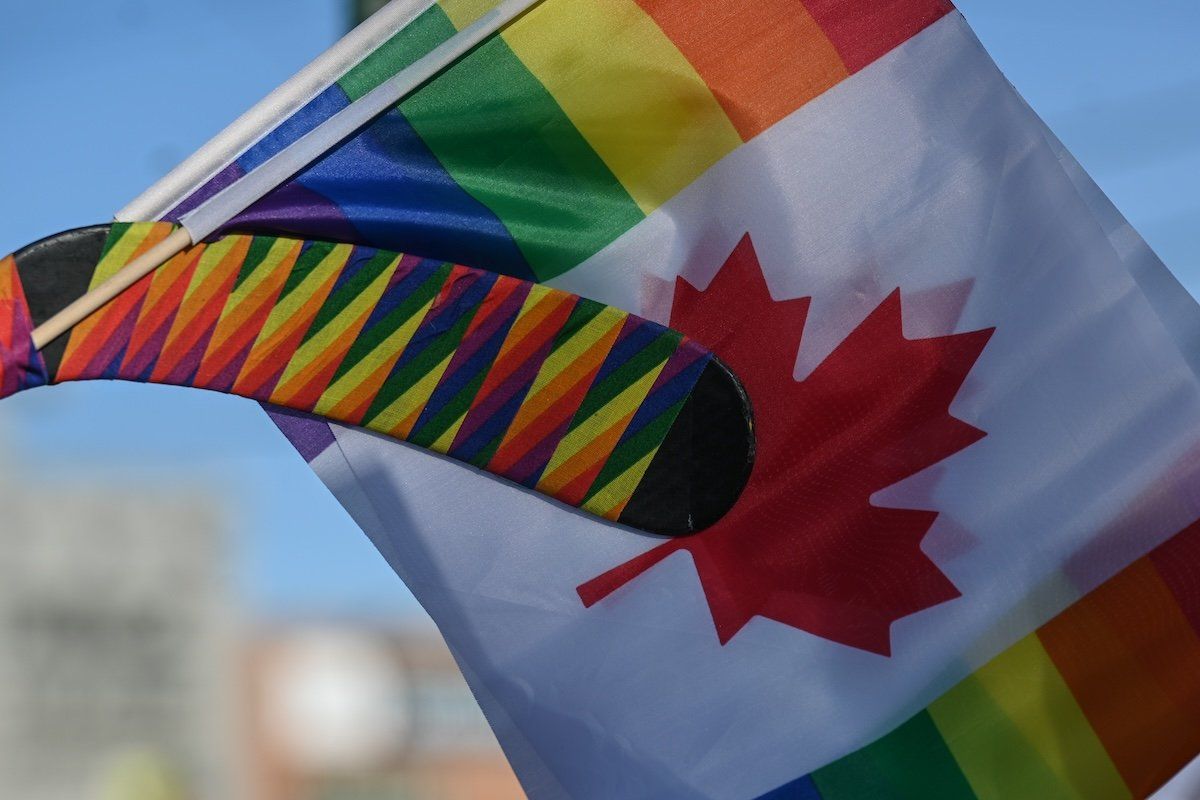Activists rallied against Premier Danielle Smith's proposed LGBTQ2S+ regulations and legislation that impacts transgender and non-binary youth, on Feb. 03, 2024, in Edmonton, Alberta, Canada.
Conservative politicians on both sides of the border are bracing for the progressive response to legislation critics say discriminates against members of the transgender community.
In Alberta, populist United Conservative Premier Danielle Smith has introduced a series of measures she says boost parental rights and protect children. All reassignment surgeries for minors will be prohibited; puberty blockers and hormone therapies will be barred for those 15 and under, and limited for “mature teens;” parents must consent to children 15 and under altering their name or pronouns in school; while athletes assigned male sex at birth will not be able to compete in women's sports.
Prime Minister Justin Trudeau called Smith’s plan “the most anti-LGBT policies anywhere in the country.”
Meanwhile, in Iowa, Republican Gov. Kim Reynolds has introduced legislation that excludes transgender people from “sex-segregated spaces” and requires that they list their sex at birth on their birth certificate. A similar move to require that their sex at birth be listed on driver's licenses was defeated.
Transgender activists in Iowa compared the proposed legislation to requiring gay people to wear a pink triangle during the Holocaust. Others have pointed out that the birth certificate provision is a violation of privacy in a state that bars governments from disclosing medical information on IDs, including COVID-19 vaccination status.
Democratic Rep. Sharon Stechman, in Iowa’s General Assembly, summed it up well: “I can think of a million other things we should be doing besides going after 0.29% of our population.”
